Written by Mariami Shanshashvili, Contributing Writer, Classical Wisdom
Plato’s Euthyphro is centered around Socrates’ attempts to examine and define the concept of piety. In the course of conversation, he develops a central and somewhat scandalous argument: what is holy is not the same as what the gods do or approve. In fact, the gods ‘sin’ and engage in immoral behavior a lot – they murder, steal, cheat, wage wars, and act out of spite.
Although appearance of the first philosophers in ancient Greece was all about the emergence of unconventional and nontraditional ways of thinking, Xenophanes could still be justifiably viewed as one of the most – if not the most – unorthodox and even scandalous figure of his era.
There were two things an ancient Greek would never doubt: first, that the gods are in charge of everything and everyone, and second, that we know this because they themselves disclosed it to us. The sun, rainbows, and the very earth we are walking on were believed to be gods and goddesses. Every natural phenomenon was ascribed to some property of a deity; every historical event and fate of an individual race or man was explained as the result of the will of the Olympians.

Assembly of 20 gods in Olympus, a painting by Raphael
And how did they know? Muses told them so. Invocation of the Muses served as a traditional and commonplace poetic tool: when a poet wanted to authenticate the truth of his claims, he called on Muses so they would act as witnesses and provide assertion.
This is how Homer opens both of his epic poems: he addresses divine agency. It should not be hard to guess that the ancient Greeks were not very fond of people who dared to doubt their undoubtable beliefs – think of the trials of Socrates or Anaxagoras – and unfortunately, this is exactly what philosophers tend to do.

The Death of Socrates, Jacques-Louis David, 1787. Metropolitan Museum of Art, New York.
Anaximenes, for example, allegedly said that there are gods, exactly as Greek religion acknowledged, but that they come from air (his Cosmic principle) as well as the rest of the universe. And Parmenides, one of the most ahead-of-his-time thinkers, begins his poem by depicting a divine revelation.
So most of early philosophers did not entirely give up on the traditional gods and divination, but threw down a challenge to the conventional notion of the divine. As Cicero states, Xenophanes was the only one among the most ancient philosophers who, while basing his whole philosophy on the existence of the divine entity, launched a direct attack on the popular religion and “did away with divination from its very foundation.”
Xenophanes was an itinerant poet and philosopher from a small Ionian town of Colophon. He is reported to have had quite a storm-tossed life as he was banished from his homeland, was sold into slavery, and buried his sons with his own hands.

Fictionalized portrait of Xenophanes from a 17th-century engraving
Despite his manifold interests, he is primarily remembered for his critique of traditional religious concepts, and as professor Peter Adamson aptly words it, “in doing so, he inaugurated a not-always-friendly rivalry between Greek religion and Greek philosophy that will persist right through Plato and Aristotle”.
“Both Homer and Hesiod have ascribed to the gods all deeds which among men are matters of reproach and blame: thieving, adultery, and deceiving one another” (Sextus Empiricus, Against the Mathematicians 9.193)

Homer Singing for the People
And indeed, it seems like the Greeks imagined their gods in their own image: the gods were born, wore clothes, ate, indulged themselves with sexual adventures, and looked like men, just much more beautiful and perfect. Realizing this, Xenophanes observes:
“If horses had hands, or oxen or lions, or if they could draw with their hands and produce works as men do, then horses would draw figures of gods like horses, and oxen like oxen, and each would render the bodies to be of the same frame that each of them have.” (Clement, Miscellanies 5.110;).
The point is that humans have a tendency to attribute their own characteristics to the divine entities; in other words, humans think of their gods as all too human. Xenophanes believed it was disrespectful to the gods to conceptualize them as being subject to human weaknesses and illicit acts. It is the same as ascribing imperfections to the perfect being – which, without doubt, does not make any sense.

Bronze statue of Zeus or Poseidon from Artemision, Euboea. ca. 460 BC.
“greatest among gods and men, not at all like mortals in body or in thought.” (Clement, Miscellanies, 5.109;).
Even though the reference to the “gods” in plural raises a question about whether Xenophanes was a monotheist or polytheist (some scholars even designate him as a pantheist), it is certain that Xenophanean image of the god is set apart from traditional polytheistic convictions and falls on the spectrum of the monotheistic paradigm.

God as architect of the world, folio 1 verso of a moralized Bible, from Paris, France, ca 1220-1230, Osterreichische Nationalbibliothek (Photo credit: Wikipedia)
It is more likely that he means lesser deities in the plural form of “gods”. Throughout the records of Xenophanes, only one god, a single divine entity, is presented as the perfect, almighty being who holds sway over the whole universe.
“. . whole [he] sees, whole [he] thinks, and whole [he] hears. . . (Sextus Empiricus, Against the Mathematicians 9.144;).
“Always [he] remains in the same [state], changing not at all, nor is it fitting that [he] come and go to different places at different times. . . but completely without toil [he] agitates all things by the will of his mind.” (Simplicius, Commentary on Aristotle’s Physics 23.10; 23.19;).
All of the characteristics Xenophanes ascribes to the god – omnipresence, omniscience, omnipotence, immobility, incorporeality (spirituality) – are the typical attributes of a monotheistic deity. He prefigured the ideas which still lay centuries ahead.

A late 16th-century engraving of Anselm, archbishop of Canterbury. In his Proslogion (1078 AD), St. Anselm proposed the first ontological argument for the existence of God in the Western tradition.
Another key aspect of Xenophanes’ philosophy is his remarkable contribution to epistemology (the theory of knowledge). He opposes the traditional understanding of divination by claiming that,
“by no means did the gods intimate all things to mortals from the beginning, but in time, inquiring, they discover better.” (Stobaeus, Selections 1.8.2;).
Xenophanes suggests that it is unreasonable of men to expect divine disclosure about the things they seek to know. Moreover, he raises questions about the nature and possibility of sure and certain knowledge.
There he makes a fundamental distinction between knowledge and belief/opinion, a theme which will be later taken up, for instance, by Heraclitus, Plato, and Aristotle, and is one of the most important problems in philosophy as a whole.
“…and of course the clear and certain truth no man has seen. Nor will there be anyone who knows about the gods and what I say about all things. For even if, in the best case, one happened to speak just of what has been brought to pass, still he himself would not know. But opinion is allotted to all.” (Sextus Empiricus, Against the Mathematicians 7.49.110;).

Plato’s Allegory of the Cave by Jan Saenredam, according to Cornelis van Haarlem, 1604, Albertina, Vienna. Plato’s allegory of the cave, told to us in the Republic, is a thought experiment that is used to this day to illustrate the limits of our knowledge about the world as it is in itself.
It is important to note that by this, Xenophanes does not necessarily reject the possibility of any kind of knowledge, but rather reproves dogmatism and acknowledges boundaries of the dimension of human knowledge. Even though our epistemic status is limited, we can still form opinions and inquire about things. As F.R. Pickering notes,
“Xenophanes is a natural epistemologist, who claims that statements concerning the non-evident realm of the divine as well as the far-reaching generalizations of natural sciences cannot be known with certainty but must remain the objects of opinion.”
Ancient Greeks, on the one hand, had poets who provided answers for all of their questions and, on the other hand, had a poet philosopher who tried to awaken them from their ´dogmatic slumber´ by casting doubts on their answers and asking questions, the relevance of which would persist for centuries to come.
Resources:
- Adamson, Peter. A History of Philosophy Without any Gaps: Classical Philosophy.
- Cohen, Mark, Patricia Curd and C.D.C Reeve. Reading in Ancient Greek Philosophy: From Thales to Aristotle. NOTE: all the passages of Xenophanes are cited from this book.
- Tor, Shaul. Mortal and Divine in Early Greek Epistemology.
- Lesher, James, “Xenophanes”, The Stanford Encyclopedia of Philosophy (Summer 2019 Edition), Edward N. Zalta (ed.), URL = <https://plato.stanford.edu/archives/sum2019/entries/xenophanes/>
- Patzia, Michael, “Xenophanes”.
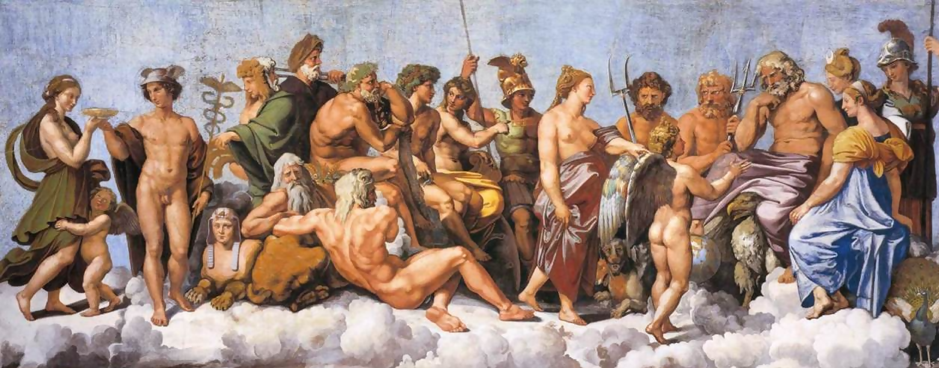
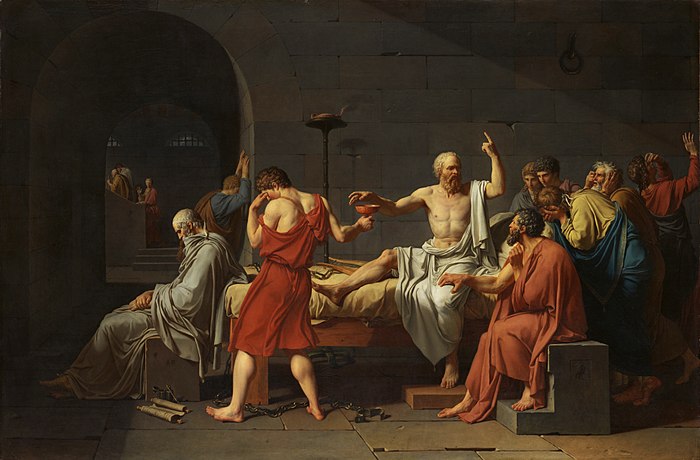
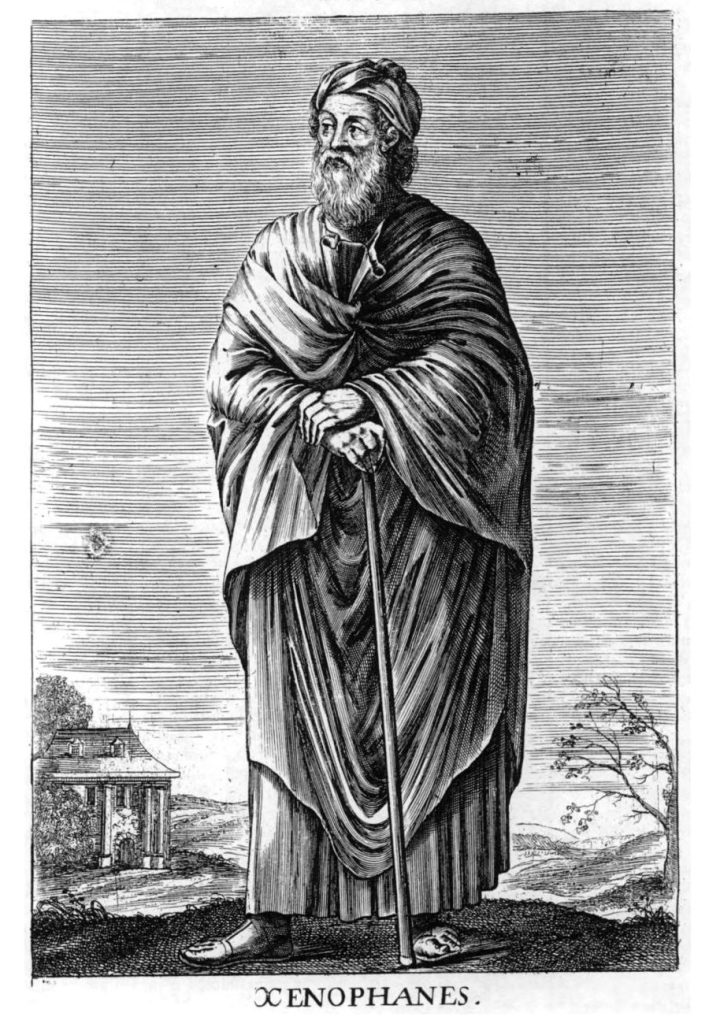

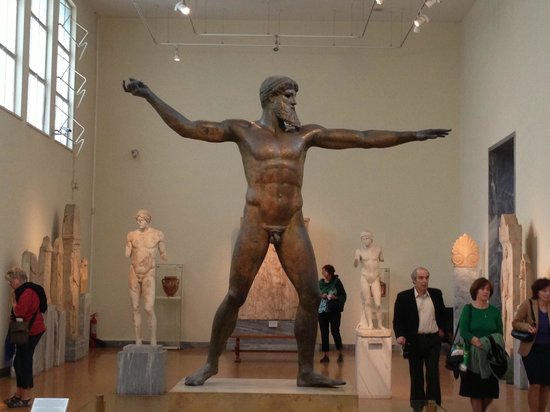
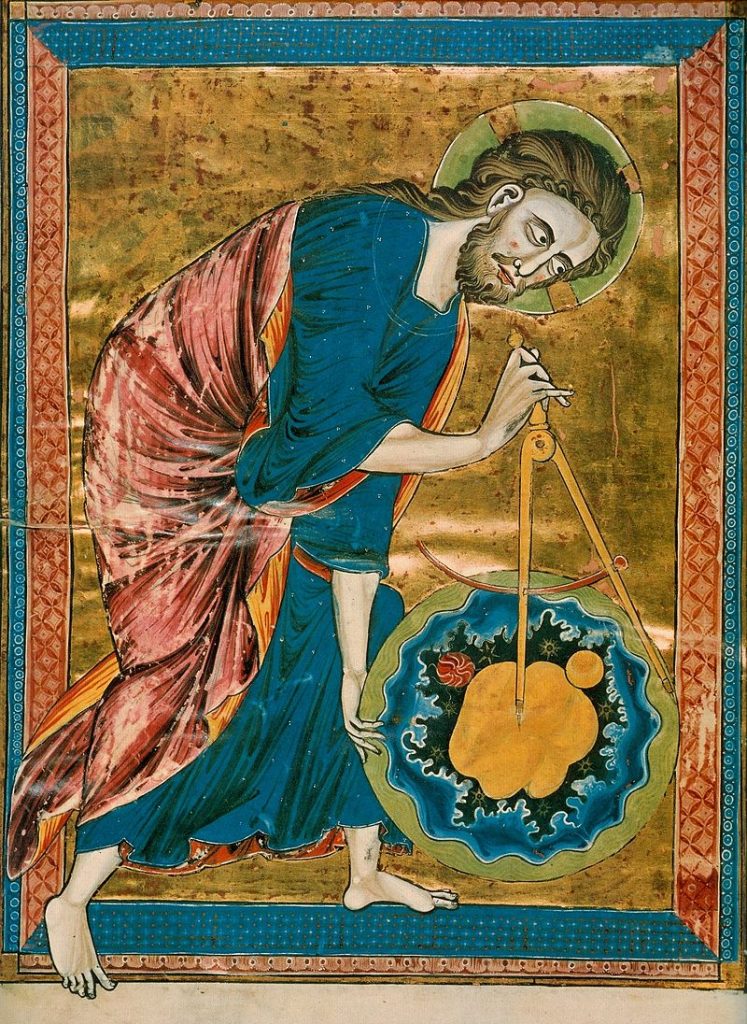
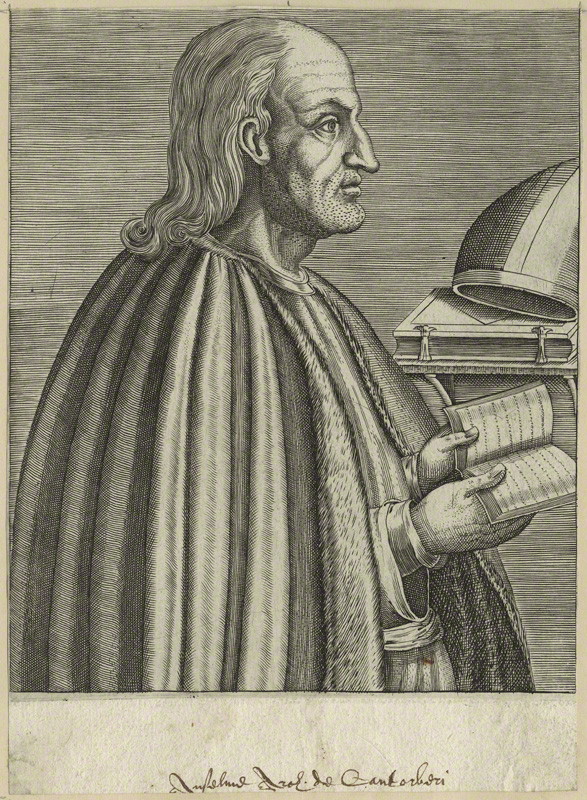
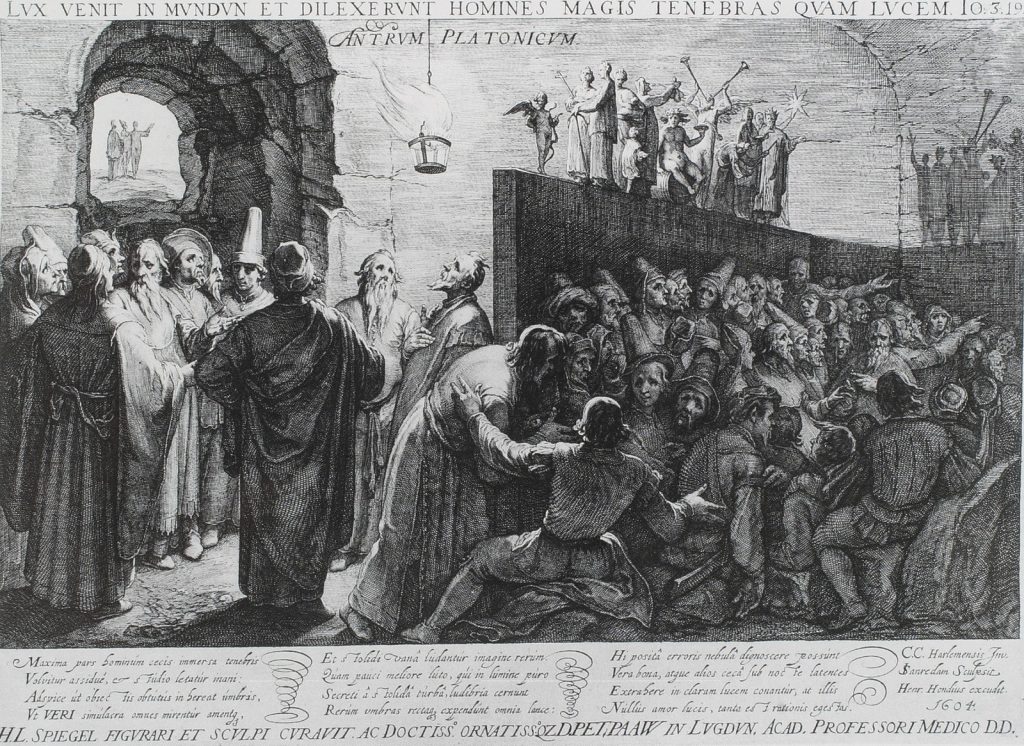










3 comments
There was a question that did the round:
* Was Xenophanes ahead of his time?
His mind shifted from having many gods that were made in the image of humanity, so to speak to one god who wouldn’t behave in jealous, angry, dictatorial etcetera ways…
Perhaps he understood this concept better than the people who invented the bible because the monotheistic god that is being portrayed there is a violent, vengeful and jealous god who committed genocides in the Old Testament on the people whom he couldn’t control… just like a Hitler or a Stalin did…
The New Testament is not really much better, but the language is softer…
Sin (not adhering to the popular ideology) is still under a death penalty, according to the dogma in the bible…
The whole book is based on absolute obedience (authoritarianism).
‘God’ in the bible is not really much better than the vengeful gods, totalitarian gods, the gods with control issues and the violent gods seen in Polytheism…
Part two of this question will be as to who was the first in creating monotheistic ideas between Akenaten (Egypt) or Xenophanes?
Xenophanes, if he had a god in mind who didn’t behave like humans, would’ve been ahead of the monotheists of today…
Here is another thought, or a question, actually.
Is there someone who can give us a scholarly comparison between Xenophanes, Akenaten, Abraham (the real one, the bible is not necessarily a good history book because propaganda spreading is its main purpose), Bhudda (who broke away from Hinduism, although not completely and perhaps Muhammed, who invented perhaps the most aggressive strain of monotheism, although Christianism is also pretty militant and dangerous…
Your comment is awaiting approval.
Here is another thought, or a question, actually.
Is there someone who can give us a scholarly comparison between Xenophanes, Akenaten, Abraham (the real one, the bible is not necessarily a good history book because propaganda spreading is its main purpose), Bhudda (who broke away from Hinduism, although not completely and perhaps Muhammed, who invented perhaps the most aggressive strain of monotheism, although Christianism is also pretty militant and dangerous…?
Trackbacks
Our apologies, you must be logged in to post a comment.